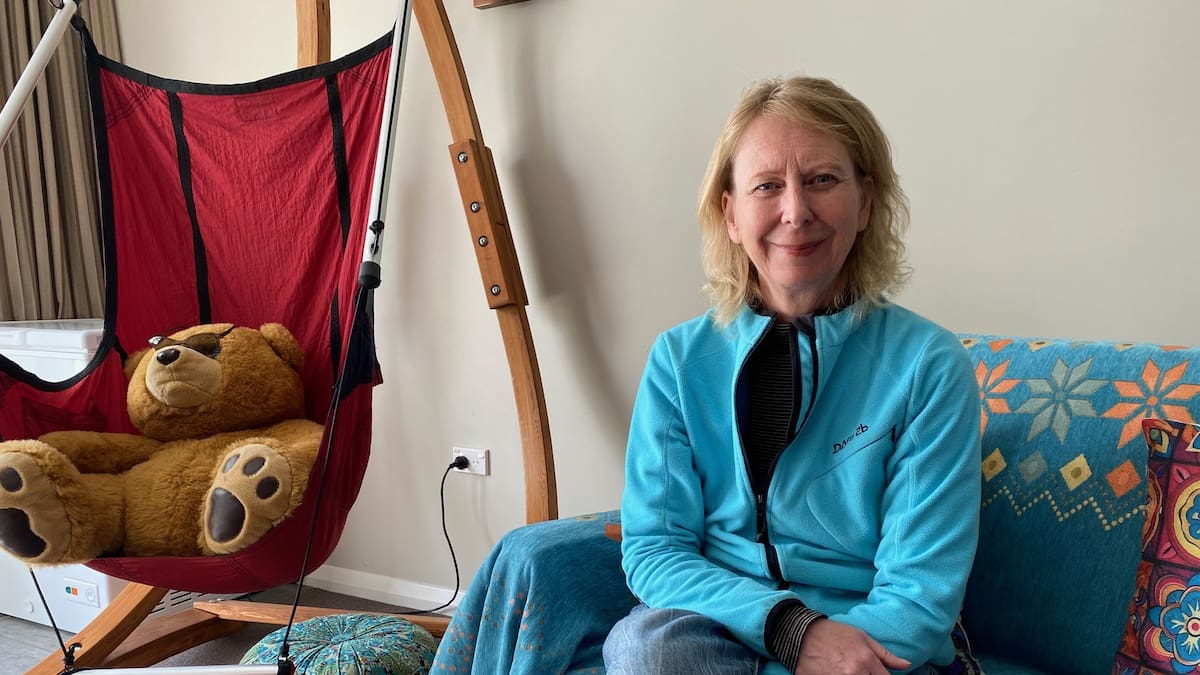“If we can detect and treat inflammation before it leads to irreversible damage, we could significantly delay progression and reduce the long-term impact on patients and the healthcare system,” Bydder said.
Jo Stewart wants to ride that train.
“I’m hoping that Mātai can help me be more proactive with my MS by understanding where my scars and lesions are,” she said.
“I will then be able to prepare for the next stage of MS.”
Stewart turns 52 in November. Born and raised in Gisborne, she was 33 and living in Scotland when she was diagnosed with MS, a chronic inflammatory disease of the central nervous system (brain and spinal cord).
In 2021, New Zealand had 4130 reported cases of MS, up from the 2896 cases reported in 2006.
The disease has no known cure and, despite advances in treatment, diagnosis remains challenging, particularly for progressive MS, where low-grade disease activity continues without visible relapses or new inflammatory lesions.
Stewart’s MS was relapsing-remitting – where new symptoms develop over days or weeks of a relapse, followed by remission that can last months or even years – but it has advanced to secondary-progressive.
“Instead of having a relapse once every six months or once a year, with recovery, I now have no recovery and the relapses are quieter but constant,” Stewart said.
“I find myself quietly getting worse every day, but the signs are so small they are not noticeable to most.”
Stewart’s symptoms include cramps in the feet, fatigue, pains in the hands and back, sensitivity to the cold, ringing in the ears and forgetfulness.
She follows as closely as she can the recommendations of Recovering from Multiple Sclerosis, by George Jelinek and Karen Law.
It means she limits herself to 50 grams of fat a day, and only five grams of that can be saturated.
She has had to relearn how to cook and how to process food “so it doesn’t kick you in the guts afterwards”.
She uses cannabis to relieve some of the symptoms.
“It helps get rid of stress. It relieves anxiety and depression. The only prescribed medication I have is to help me sleep. I also take Vitamin D, Vitamin C and flaxseed oil.
“I struggle to eat three meals a day. I don’t have the energy to prepare a meal and then sit down and eat it.
“I’d be looking to go into residential care within a year, maybe two years.”
That, too, could be problematic, as many care homes have a minimum age for residents.
Stewart will be out of town for MS Awareness Week, which starts on September 15. Her son is having his 21st birthday in Fife, Scotland, and she will be there for it.

